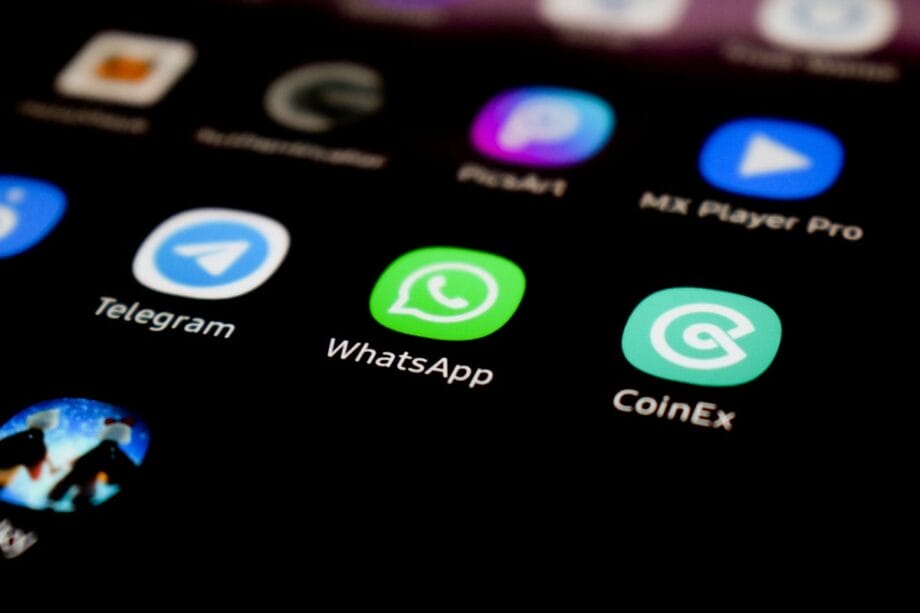Signal Under Scrutiny: A Communications App in the Limelight
Signal, a messaging application frequently spotlighted for its use among influential individuals, garnered significant attention this year, particularly during the so-called “Signalgate” incident in March.
A clandestine discussion regarding a potential strike on Yemen among officials from the United States Department of Defense—now rebranded as the Department of War—was inadvertently exposed when a journalist was included in the group chat.
In June, the app also emerged in the public eye in Spain. Recordings by the Spanish Civil Guard revealed that Santos Cerdán, a former senior official of the Spanish Socialist Party (PSOE), advised Koldo García to adopt Signal for their communications. Cerdán had been interacting with members from the leftist Basque party Euskal Herria Bildu.
“That’s nonsense,” García responded, appearing satisfied with his WhatsApp usage. This adviser is now poised to testify regarding his involvement in a kickback scandal that has sent shockwaves through Spanish politics.
Meredith Whittaker, president of the Signal Foundation, emphasized the stark difference between Signal and WhatsApp: “It’s akin to the disparity between 10% gold mixed with 90% brass and 100% gold,” she stated during a video call with EL PAÍS. This marked her inaugural discussion with a Spanish-language outlet since her appointment was revealed in 2022, following her tenure at Google.
“While WhatsApp may claim to contain gold among its ingredients, Signal epitomizes the gold standard. Our singular focus is privacy. We excel at one thing—providing the world’s largest truly private communication platform,” she asserted.
But what if this notoriety renders Signal the go-to app for those attempting to elude justice? “That’s a narrative about them, not us,” she replied. “It’s akin to using a highway for smuggling—does that implicate the highway or the individuals utilizing it?
The conflation of infrastructure with the actions of its users allows nefarious actors to weaponize privacy as a rationale for misdeeds, rather than addressing underlying issues. Blaming the road for the vehicle traversing it distracts from identifying who is at the wheel.”
Signal operates as an open-source, encrypted messaging platform governed by a nonprofit organization, abstaining from unnecessary data retention. This design inherently prevents compliance with governmental and police information requests.
“We’re unaware of your contact list, your messaging activities, or who comprises your groups. We do not even store your profile picture. Even under duress, we are incapable of disclosing such information,” Whittaker stated.
Brian Acton, co-founder of Signal and also the architect behind WhatsApp, plays a pivotal role alongside Whittaker, who may not hold the title of CEO but is instrumental in expanding Signal’s acclaimed technology.
“The most rewarding aspect of my position is leading with unequivocal ethical clarity. I’m not encumbered by corporate constraints aimed at serving shareholders at the expense of users,” she remarked.
Her demeanor is refreshingly straightforward—an uncharacteristic trait for many Silicon Valley executives—yet the challenges ahead remain formidable. Despite being established in 2014, Signal’s global user base pales in comparison to its competitors, WhatsApp and Telegram. In Spain and throughout much of the Spanish-speaking world, save for a few specific markets, Signal has yet to appear among the 200 most downloaded apps, as per Sensor Tower’s statistics.
Nevertheless, Whittaker remains optimistic. While exact statistics elude her, she is aware of the increasing adoption in Spain and across Latin America. “We have witnessed considerable growth in Europe, particularly,” she noted.
1. The Network Effect
A messaging application necessitates dual participation for functionality. Despite the abundance of privacy-minded users, if others do not embrace Signal, effective communication remains impossible. Whittaker acknowledges this daunting challenge, known as the “network effect”: the more participants engaged in a network, the greater the momentum for additional users to join, making it increasingly difficult for existing users to depart.
This encapsulates the chief dilemma, as communication transcends mere technology. Users do not select communication tools based on purism; instead, they desire to converse with friends. It’s fundamental to a vibrant social existence.
The network effect operates as a profound social phenomenon, not merely a technical aspect. Even the most ideologically passionate cryptographer cannot utilize Signal if their peers are absent, explains Whittaker. “I empathize with those reluctant to add another app to their devices,” she admits.
However, societal preferences evolve. “It’s evident in group dynamics—perhaps a soccer team transitions to Signal, or colleagues seek an alternative to corporate messaging systems,” she continues.
“Instances are proliferating where individuals pause and contemplate their options: ‘I don’t want my communications on WhatsApp or Meta’s servers. Maybe they’ll be weaponized during a merger.’ Consequently, they migrate to Signal.”
2. Differentiating WhatsApp and Telegram
Whittaker articulates the privacy deficiencies inherent in both WhatsApp and Telegram. Although WhatsApp employs Signal’s technology, it compromises user security to offer additional features like chatbots and advertisements.
WhatsApp fundamentally diverges from Signal. They license our advanced technology because it is superior, yet they only encrypt message content while amassing extensive metadata: contact lists, profile pictures, and interaction details.

If you were my oncologist, for instance, they could trace our initial conversation and the frequency of our exchanges, coding a deeply personal narrative that could, for example, adversely affect your job prospects due to health-related concerns,” she explicates.
Conversely, Telegram presents a different set of challenges. While it boasts extensive functionalities that resemble a social network, it only encrypts certain aspects of its services.
“This highlights the challenge of validating technical claims. In an environment rife with exaggeration and myth-making within technology, marketing often overshadows reality, particularly with Telegram,” she asserts.
She adds, “Their origin story may be compelling, albeit somewhat dubious, and they make assertions lacking scientific support. This reality incites frustration since lives are at stake. Users of Telegram, erroneously assuming their privacy is protected, have reported instances of their group chats being compromised, leading to targeting by authoritarian regimes—all due to Telegram perpetuating misleading marketing narratives about their products.”
3. Privacy vs. Government Surveillance
The intrinsic right to privacy necessitates relentless confrontation against “formidable corporations whose entire business models and operational ethos are predicated on the accumulation and monetization of data,” states Whittaker.
“This includes adversarial governments engaging in wishful thinking, believing they must undermine encryption to monitor ‘bad actors,’ ultimately eroding privacy for everyone else. This constitutes a significant battle for a small organization like ours,” she adds.
4. Signal’s Resolve Against Compromise
The European Union faces an imminent decision regarding a mandate to compel applications to dilute encryption and scrutinize messages to identify child pornography—a movement referred to as Chat Control. Signal has unequivocally declared its intention to maintain its encryption standards without modification. The pivotal question remains: should compliance be forced, or would it choose to abandon a region or nation?
“We take our responsibility to our users seriously,” asserts Whittaker. “This is not a threat we issue lightly. For now, we are encouraged that Chat Control has not advanced, yet we remain wary of its potential passage.”
This apprehension stems from a profound misunderstanding of technology’s true capabilities. “We fear that a convergence of authoritarian forces, coupled with a fundamental misinterpretation of technology and irresponsible AI hype, could inadvertently lead to the enactment of such legislation,” she notes.
What measures would the foundation enact should this occur? “We would persist in operations as long as feasibly possible, akin to our approach in Iran and our responses to blockades in Russia, collaborating with our community to establish proxies, ensuring that users within these territories retain access to Signal,” she emphasizes.
Such actions are imperative, she insists, “as a breach in a network can have repercussions for all users. If the Spanish government compelled us to either compromise our encryption—jeopardizing Signal’s integrity—or cease operations in that market, we would opt to exit a market instantaneously,” she concludes.
5. Exploring Additional Revenue Streams
Signal’s operational model relies on user donations, ranging from modest contributions to substantial gifts from philanthropists. It resembles the Wikipedia model within the messaging realm. However, it is experimenting with paid features, including options for saving encrypted messages, photos, and videos in the cloud—a departure from the previous provision of these services solely on user devices.
“This marks our first venture into could storage. It’s not a flashy business model but one viable avenue for addressing the significant operational expenses tied to maintaining a robust real-time communication platform,” concludes Whittaker.
6. AI and User Privacy
Signal has decisively ruled out the introduction of AI chatbots akin to those deployed by Meta. “WhatsApp’s need for an AI agent is a façade. Mark [Zuckerberg] has proclaimed a necessity for such an agent, thereby mandating its existence, regardless of its rationale.” As for the potential threat AI agents pose to privacy, Whittaker states emphatically:
“We are not developing an AI agent. Instead, we are focused on safeguarding Signal from invasive AI technologies that jeopardize privacy, akin to the situation with Microsoft Recall.”
Source link: English.elpais.com.






